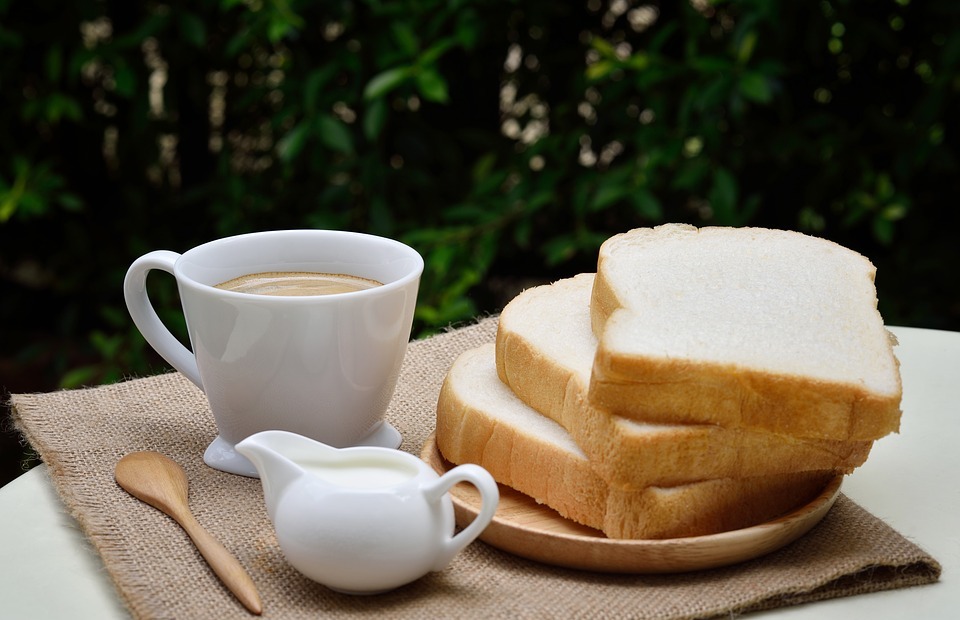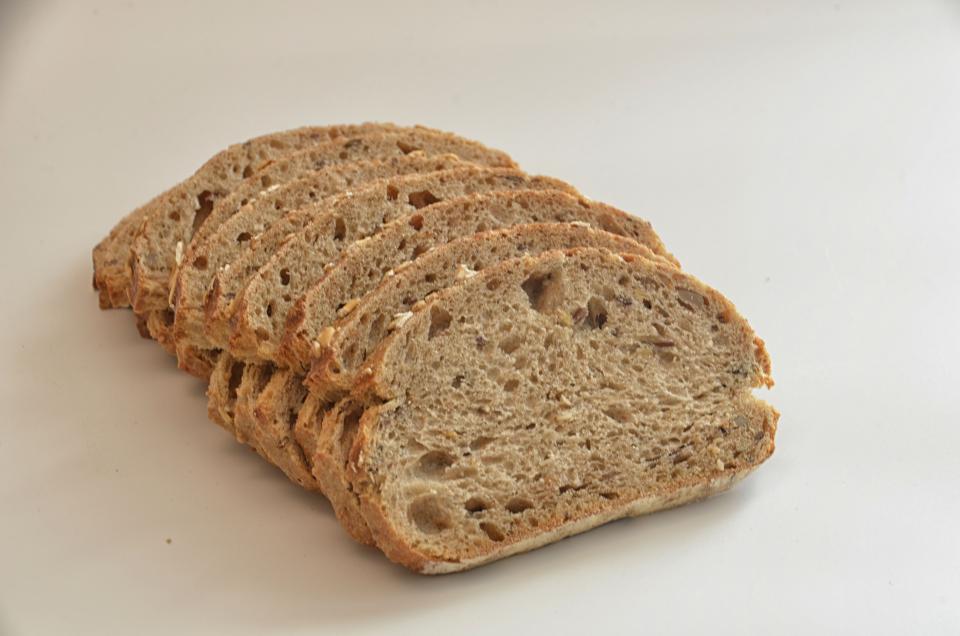This in-depth guide unravels the complex relationship between rabbits and bread, offering a comprehensive understanding of the nutritional implications, potential health risks, and best practices for feeding this common human food to your beloved bunny. We will explore the nutritional value of various bread types, delve into the intricacies of rabbit digestion, and equip you with the knowledge to make informed choices for your rabbit's well-being.
Part 1: Understanding the Rabbit's Digestive System

1.1. Herbivores with Specialized Digestive Tracts
Rabbits are strict herbivores, meaning they exclusively consume plant matter. Their digestive system is uniquely adapted to break down high-fiber diets, relying heavily on a complex process known as hindgut fermentation.
1.2. Hindgut Fermentation: The Key to Rabbit Digestion
Unlike humans, rabbits lack enzymes in their small intestines to fully digest cellulose, the primary component of plant cell walls. Instead, this breakdown occurs in the cecum, a large pouch in the hindgut where trillions of beneficial bacteria ferment the indigestible plant matter.
1.3. Cecotrophy: Recycling Nutrients for Optimal Health
Rabbits practice cecotrophy, a unique behaviour where they consume soft, nutrient-rich fecal pellets produced by the cecum. These cecotropes are packed with essential vitamins and nutrients, allowing rabbits to extract maximum value from their diet.
Part 2: Deconstructing Bread: Nutritional Content and Potential Pitfalls

2.1. Bread: A Complex Carbohydrate Source with Limited Nutritional Value
Bread is primarily composed of carbohydrates, which provide energy. However, the nutritional content varies significantly based on the type of bread.
- White Bread: Highly refined, white bread lacks essential nutrients and fiber. It's composed primarily of simple carbohydrates, which are quickly digested and can lead to blood sugar spikes in rabbits.
- Whole Wheat Bread: While containing more fiber and nutrients than white bread, whole wheat bread still falls short of providing the necessary fiber and nutrient profile for rabbits. Its high starch content can also contribute to digestive issues.
2.2. The Impact of Yeast and Sugar
Yeast is a crucial ingredient in bread-making, responsible for fermentation and the characteristic texture. During fermentation, sugars are broken down, resulting in a final product containing a significant amount of readily available sugars. This sugar overload is detrimental to rabbit health, contributing to blood sugar spikes, digestive issues, and obesity.
2.3. Additives and Preservatives: Hidden Dangers
Many commercial bread varieties contain a plethora of additives and preservatives to enhance flavour, texture, and shelf life. These ingredients, often artificial and synthetic, can be toxic to rabbits in even small quantities, potentially causing allergic reactions, gastrointestinal upset, and long-term health problems.
Part 3: The Risks of Feeding Bread to Rabbits: A Comprehensive Examination
3.1. Digestive Issues: Stasis, Gas, and Bloating
Bread's low fiber content and high sugar content create a perfect storm for digestive problems in rabbits.
- Gastrointestinal Stasis: Bread's lack of fiber slows down the digestive process, potentially leading to a life-threatening condition known as gastrointestinal stasis. In this state, food accumulates in the digestive tract, leading to a buildup of gas, bloating, and ultimately, organ damage.
- Gas and Bloating: The fermentation of sugars in the digestive tract generates gas, leading to discomfort, pain, and potentially, a life-threatening condition called bloat, where excessive gas accumulates in the stomach and intestines.
- Diarrhea: While less common than stasis and gas, bread can also trigger diarrhea in rabbits, especially if consumed in large quantities. Diarrhea can lead to dehydration and malnutrition, posing a serious threat to rabbit health.
3.2. Dental Problems: Overgrown Teeth and Dental Disease
Rabbits have constantly growing teeth that require regular wear and tear from chewing on high-fiber foods like hay.
- Overgrown Teeth: The lack of fiber in bread hinders the natural wear down of teeth, leading to overgrown teeth. Overgrown teeth can make it impossible for rabbits to eat, leading to malnutrition, pain, and ultimately, death.
- Dental Disease: Overgrown teeth can contribute to dental disease, characterized by infection, inflammation, and abscess formation. Dental disease requires veterinary intervention and can significantly impact a rabbit's quality of life.
3.3. Obesity and Associated Health Complications: A Major Threat
Bread is high in calories, and its excessive consumption can quickly lead to weight gain in rabbits.
- Obesity: Obese rabbits are at a significantly increased risk of developing various health problems, including heart disease, diabetes, joint problems, and liver disease.
- Liver Disease: Obesity puts excessive strain on the liver, potentially leading to liver disease, which can be life-threatening.
- Reduced Life Expectancy: Obesity significantly reduces the lifespan of rabbits, often leading to premature death from complications related to the excess weight.
Part 4: The Verdict: Bread is Not Suitable for Rabbits
In conclusion, it is strongly advised not to feed bread to rabbits. The risks associated with bread consumption outweigh any potential benefits, and a balanced diet of hay, fresh vegetables, and limited pellets is crucial for maintaining a rabbit's overall health and well-being.
Part 5: Exploring Safe and Healthy Alternatives to Bread
Instead of offering bread, focus on providing a nutritionally complete diet that supports your rabbit's natural needs:
- Hay: The cornerstone of a rabbit's diet, Timothy hay provides essential fiber, promotes healthy digestion, and supports dental health. Aim for unlimited access to hay throughout the day.
- Fresh Vegetables: Offer a variety of fresh leafy greens daily, including spinach, kale, romaine lettuce, cilantro, parsley, and other rabbit-safe vegetables. This provides vitamins, minerals, and antioxidants.
- Pellets: Choose high-quality rabbit pellets designed to complement hay and vegetables, providing additional nutrients. Pellets should be offered in limited quantities, typically 1/8 cup per 5 pounds of body weight.
- Safe Treats: Occasional treats, such as fresh herbs, fruits (in moderation), and safe vegetables, can provide enrichment and variety. However, it is crucial to ensure that these treats are offered sparingly to avoid disrupting a balanced diet.
Part 6: Understanding the Variations: Different Types of Bread and Their Implications
6.1. White Bread: A Nutritional Void
White bread, made from refined flour stripped of its bran and germ, is devoid of essential nutrients and fiber. It's primarily composed of simple carbohydrates, which are quickly digested and can lead to blood sugar spikes in rabbits, further increasing the risk of digestive problems and obesity.
6.2. Whole Wheat Bread: A Slight Improvement, but Still Unsuitable
While whole wheat bread contains more fiber and nutrients than white bread, it still lacks the necessary fiber content and balanced nutrient profile for rabbits. Its high starch content can also contribute to digestive issues.
6.3. Rye Bread: A Higher Fiber Content, but Not Ideal
Rye bread is made from rye flour, which contains a higher fiber content than white bread. However, it's still not a suitable food for rabbits, as it lacks the essential nutrients found in hay and vegetables.
6.4. Sourdough Bread: The Fermentation Factor
Sourdough bread is made using a sourdough starter, a fermented mixture of flour and water. The fermentation process produces beneficial bacteria, but it doesn't make sourdough bread a safe food for rabbits. Its high sugar content and low fiber content remain a concern.
6.5. Gluten-Free Bread: Not a Rabbit-Safe Solution
Gluten-free bread, often made with alternative flours like rice flour or almond flour, may seem like a healthier option, but it still lacks the essential fiber and nutrient profile rabbits require. Additionally, many gluten-free bread varieties contain additives and preservatives that can be harmful to rabbits.
Part 7: Debunking Myths: Bread Crusts, Toast, and Bread Crumbs
7.1. Can Rabbits Eat Bread Crusts?
While bread crusts are often considered safer than the soft parts of bread due to their lower yeast and sugar content, they still lack the necessary fiber and can cause digestive issues. It's best to avoid feeding bread crusts to rabbits.
7.2. Can Rabbits Eat Toast?
Toasting bread does not eliminate the nutritional deficiencies and risks associated with feeding it to rabbits. The heat of toasting may slightly reduce the sugar content, but it doesn't address the lack of fiber and overall nutritional inadequacy.
7.3. Can Rabbits Eat Bread Crumbs?
Bread crumbs are even more concentrated in carbohydrates and sugars than whole pieces of bread and should be strictly avoided. Their high sugar content and lack of fiber pose an even greater risk to rabbit health.
Part 8: Understanding Baby Rabbits and Special Considerations
8.1. Baby Rabbits: Even More Vulnerable to Bread
Baby rabbits are even more susceptible to the risks associated with bread consumption than adult rabbits. Their digestive systems are still developing and are particularly sensitive to changes in diet. It's crucial to avoid feeding bread to baby rabbits.
8.2. Introduce New Foods with Caution
When introducing any new food to your rabbit, even if considered safe, proceed with caution. Offer small amounts, monitor for any signs of digestive upset, and consult your veterinarian for guidance.
Part 9: A Reminder: Prioritize a Balanced Diet
The best way to ensure your rabbit's health and well-being is to provide a balanced diet based on the foundational elements of hay, fresh vegetables, and limited pellets. This approach supports optimal digestion, dental health, and overall well-being. By choosing safe and nutritious food options, you can give your rabbit the best chance for a long and happy life.
Everyone is watching
-

Do Rabbits Lay Eggs? (The Surprising Truth)
OTHER TYPES OF PETSThis article will unravel the common misconception that rabbits lay eggs, exploring the fascinating world of r...
-

What's a Group of Rabbits Called? (A Comprehensive Guide)
OTHER TYPES OF PETSThis article delves into the fascinating world of rabbits, exploring the various terms used to describe a grou...
-

Can Rabbits Eat Grapes? A Guide to Safe Rabbit Treats
OTHER TYPES OF PETSThis comprehensive guide will explore the safety and suitability of grapes for rabbits, providing detailed inf...
-

Predators That Hunt Rabbits: A Guide to Natural Enemies
OTHER TYPES OF PETSI've always been fascinated by the circle of life, that delicate dance between predator and prey. Growing up ...
-

Are Rabbits Nocturnal Animals?
OTHER TYPES OF PETSThe question of whether rabbits are nocturnal animals is a fascinating one, with a surprisingly complex answer...
